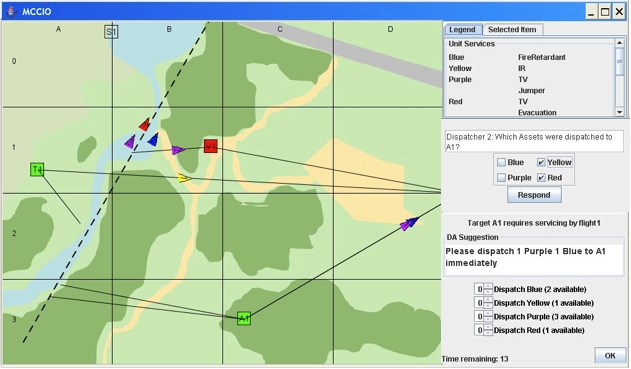EYODA: Etiquette for Yielding Optimized Decision Aids
The objective of EYODA is to evaluate the claim that the “etiquette”, based on Brown and Levinson's model, with which a non-personified, automated decision aiding system delivers its decision recommendations can have measurable effects on how highly trained users accept and perform with that recommendation.

Our overall objective is to evaluate the claim that the “etiquette” with which a non-personified, automated decision aiding system delivers its decision recommendations can have measurable effects on how even highly trained, professional users perceive, accept and perform with that recommendation. Contributing objectives for this research are to characterize dimensions by which perceived etiquette levels can be manipulated in the interface of a decision aiding system, as well as the dimensions of human acceptance of and performance with decision aiding information which may be affected by these etiquette variables. We will begin the process of quantifying the relative magnitude of etiquette effects on human perception, acceptance and performance through developing an experimental platform and paradigm. Our ultimate goal is the production of design guidelines and a design processes for etiquette-based design of decision aiding systems—that is, attention to and even the manipulation of the etiquette of decision aiding systems in order to achieve better, safer and more accurate human + machine performance.
Applications: Training, Decision Aids, Predictive Models, etc.

